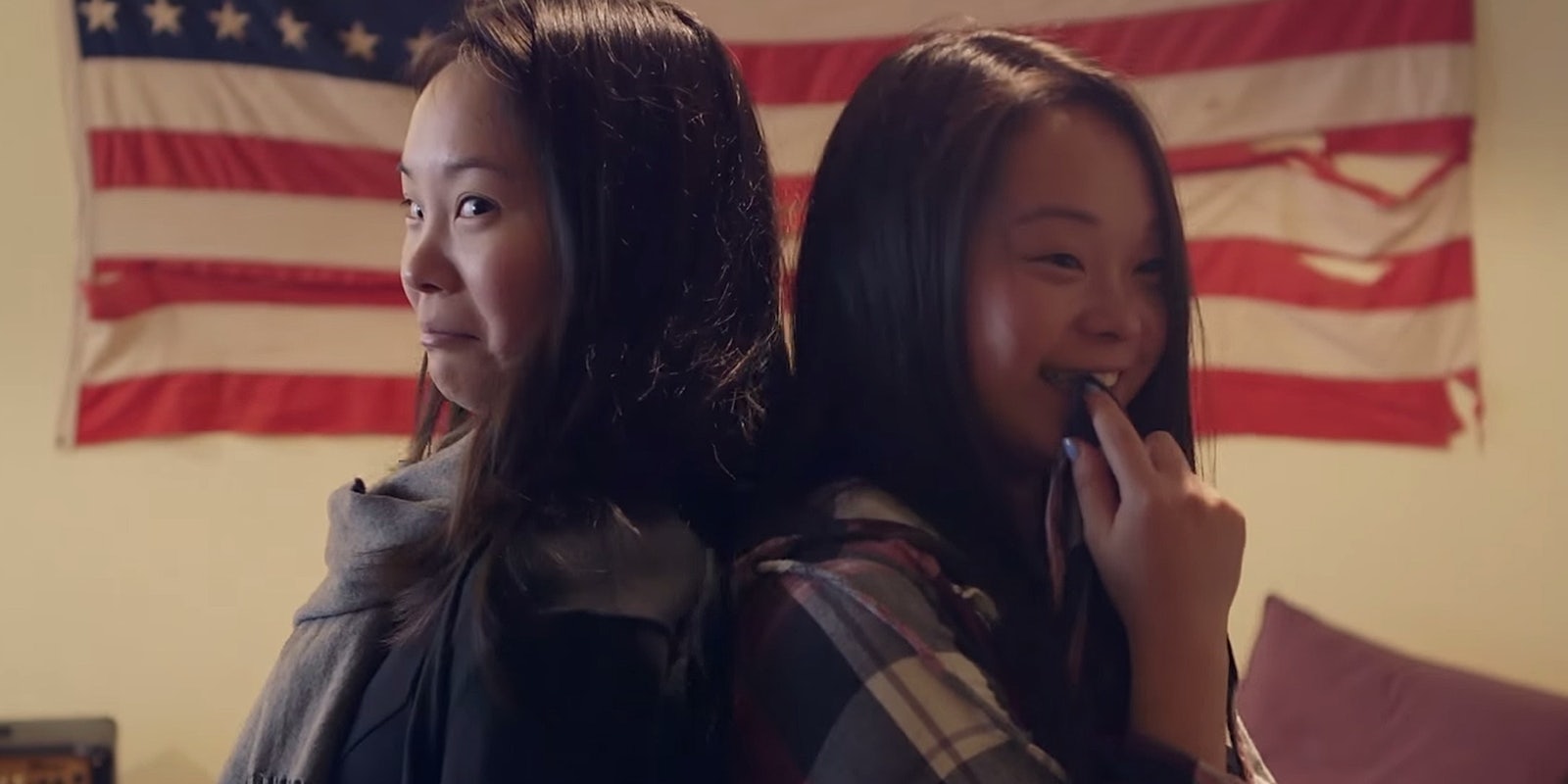What would you do if you found out you had a twin sister you didn’t know about living on the other side of the globe? If you’re part of the YouTube generation, you start cameras rolling.
When Samantha Futerman got a mysterious message on her Facebook in 2013, that’s exactly what she did. She was already primed for the camera, as an up-and-coming Los Angeles actress who’d already begun creating YouTube vlogs and skits. In fact, it was one such skit that started the ball rolling on this adventure. Futerman was adopted from South Korea as a child, and none of her documents indicated she had a twin. Still, there was a French girl, Anaïs Bordier, also adopted from South Korea, who had her face and her same birthday.
“It’s so funny, we started documenting before we even knew, taking screenshots of the messages,” explained Futerman. “A friend said to me that I should record the first Skype. I had been doing YouTube vlogs, so it was kind of natural to me to almost diary in that kind of way.”
The result of that documentation is Twinsters, a film they crowdfunded and recently debuted at SXSW. It follows the girls from discovery of the connection, through genetic testing to prove they were in fact identical twins, to their first meeting in France and subsequent trip to South Korea to connect with their home and hunt for answers about their parents.
The film is touching, and audiences are nervous along with the sisters as they find out for certain they’re related, and stress over how their growing up apart affected each twin differently. However, what really hits home in the film is more universal: connecting over long distances and the idea of a redefined family, a mixture of blood, nurture, and even friendship.
Where the film especially excels is its understanding of what it’s like to be digitally tethered to another person, whether a best friend or secret twin.
“Text messaging and social media is such a big part of our relationship,” explained Futerman, who is still living in L.A. while her twin works in Europe. “We knew we had to show it in some way, to show we can be on opposite sides of the world and be together. We talk on various forms of social media all day. We’ll email each other while we’re texting each other while we’re Facebook messaging each other.”
Their preferred methods of communicating are Facebook and WhatsApp, as well as a weekly video chat. The duo also make sure they have the same brand of cell phone to make it easier to communicate. Documenting that communication was key, and the film pops with digital touches of connectivity.
“The whole first act, the whole before them meeting, was all online,” explained co-director Ryan Miyamoto. “We really wanted to capture that in the film. The text messaging, it took really long to get the perfect bubbles. I thought it would be so easy, but we spent so much time.”
But while the visualization may have been a challenge, the emotional storytelling came naturally. For the twins, documenting wasn’t weird because they were filming with their best friends.
“It was too crazy of a moment to really have a chance to worry about the cameras being there,” said Futerman. “Anaïs would actually forget Ryan was filming and stand right in front of the camera.”
The moment brought together not only the two girls, but their extended family and friends, who bonded into one larger unit. That meant Bordier, who grew up an only child, now had three brothers in addition to Futerman. It also help solidify new ventures, with Futerman founding the adoption resource Kindred with fellow Korean adoptee and actress Jenna Ushkowitz, who served as an executive producer on the film.
But even the most fantastical story doesn’t guarantee a fairytale ending: The only loose end the film doesn’t tie up is a reunion with their birth mother. The girls were adopted out of different agencies, and the woman each agency contacts as the birth mother denies giving birth to anyone, let alone twins. Even with this unresolved aspect, there’s no plan for a sequel for now. The girls are just continuing their joint and individual journeys, planning trips to see each other because they can’t do more than three months without a visit, and thankful that the filmmaking experience gave them a way to share the story of adoptees.
“I like the process of filmmaking; it’s almost therapeutic in a way,” said Futerman. “Going through the whole experience, it was reliving the experience. It feels really good that people are touched by the story. That’s the message we want to get out there about family and adoption.”
Photo via samfuterman/YouTube


